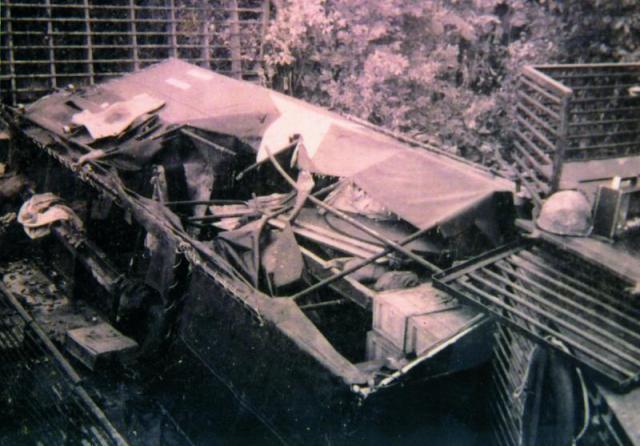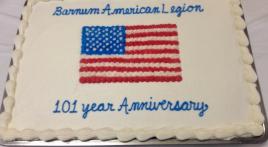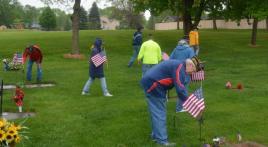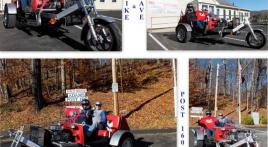In late August 1968 while serving on a river patrol boat in Vietnam, I was wounded in an ambush and medevaced back to the United States. In 1969 the Veterans Administration awarded me disability for shrapnel wound scars and tinnitus (ringing in the ears). After I was discharged from the Navy I buried those memories. Twenty-five years later they told me I had PTSD.
I spent several years in group therapy. The term “flashback” was often used, but I never heard the term “flashbulb memory” until after I retired in 2001 and began studying psychology at Bemidji State University (BSU) in Minnesota. I’ve come to the conclusion that a flashbulb memory is to a photograph as a flashback is to a video clip. Those memories are not limited to visual; they impact all the senses.
On Sept. 11, 2001, when the Twin Towers were attacked, (an event used today by researchers in the study of flashbulb memory) I don’t remember where I was or if it was sunny or who I was with because it didn’t directly affect me and I didn’t see the event. But I remember the hot Sunday afternoon, Aug. 18, 1968, while serving with the Mobile Riverine Force, when I turned our armor troop carrier into Hai Muoi Tam Canal.
I still feel the hard midsummer tropical sun and almost taste the baking sewer/jungle smell wafting across my cox’n flat as I steer the boat past Cai Be. I hear the boat captain curse one of the machine gunners, “Stop whining and put your f------ helmet on. We’re all cooking.”
In 2001 I enrolled in a writing class at BSU. An early writing prompt, “What would you like to write about,” produced this anguished response—an excerpt: Memories of bodies, decomposed, decapitated, disemboweled, disfigured, dehumanized, disintegrated. Of human flesh, so mangled it is dead, but clinging to that spark we call life, blood pumping on the deck as they cry for help. Blood, mingled with remnants of flesh, bone, and cloth, coursing down the well-deck, coagulating in a pool. Being wounded several times, of white-hot steel fragments entering my body, the first millisecond sensation, that of a horrible burning….
I was new to the writing craft. I didn’t know then that raw emotion should not be poured onto the page. I didn’t know that readers are repulsed by graphic imagery—heck, I didn’t know what imagery was. What I did know was that those images were an inherent part of my world. I began exploring. I’ve come to realize that, for me, olfactory imagery takes precedence over other sensory memories. The first essays I wrote dealt with events that involve decomposing and burning human flesh.
I learned about making a memory tree in an early writing class from the late Donald M. Murray’s excellent book on writing craft, "Write To Learn." The base of the tree is your event. The trunk rises and branches out; as Murray writes, “[you] discover what you already know and don’t know you know.” He’s right. The objective information, the where, what, when, who, why, how, were easy. But I discovered that as the branches grew, old memories of life on the riverboat reawakened.
Sensory memories—sight, smell, sound, taste, touch—branched as the tree grew. With manuscript revisions, long-forgotten details emerged; I’d jot them down as twigs and leaves before they drifted away. In looking back at those sketches I see that a flashbulb memory is the base of almost every sketch.
I’m confident the memories are quite accurate. I received this message from Larry Reid, 3rd Plt, Co D, 4/47th Inf Bn, 2nd Bde, 9th Inf Division, a soldier who was on our boat in the August 18 ambush. Your book confirmed some things that I remembered but could not confirm. One was that I thought I saw a medevac chopper shot down. Thank you for letting me know that I didn't imagine that. Another was about the hook not letting the ramp down. I sat at the front of the ATC [our assault boat] at one point when we were beached to discourage Charlie [Viet Cong, our enemy] from tossing grenades or firing another RPG (rocket propelled grenade). I’ve received messages from many veterans who read the book, men validating my recall.
A few years ago I read an article about expressive writing therapy and realized that when I wrote Muddy Jungle Rivers, I had unwittingly exposed myself to the concept. Today countless articles document the success of expressive writing therapy.
Ron Capps, a combat veteran of Afghanistan and founder of Veterans Writing Project, (http://veteranswriting.org/) teaches seminars and workshops using his book, Writing War: A Guide to Telling Your Own Story, as the curriculum. Ron writes, …words are not always sufficient, but they are all we have. We have to make them work. We have to try to give substance to abstractions like glory, honor, and valor, while we memorialize names like Belleau Wood, Normandy, Hue, and Fallujah.
This autumn 2016, I’m scheduled to teach a one-day writing workshop to veterans and plan to use Writing War as the core for the program. Each participant will receive a copy of Ron’s book.
Writing, putting my memories on paper, has been cathartic. Many years ago, sharing my early memory essays with university students in writing classes opened doors that had remained bolted for three decades. When I wrote Muddy Jungle Rivers I had no awareness of the psychological ramifications of what I was writing. I didn’t know about depersonalization, traumatic dissociation, flashbulb memory, numbing, fatalistic suicide.
In a perfect world we’d all have only pleasant memories, but that’s not the human condition. Empirical evidence supports the theory that writing about one’s trauma is cathartic. That to revisit and write those buried memories is a step forward.
Wendell Affield
Author: Muddy Jungle Rivers
Hawthorn Petal Press, LLC
PO Box 652
Bemidji, MN 56619-0652
Facebook: https://www.facebook.com/wendell.affield
Web: www.wendellaffield.com
Email: info@hawthornpetalpress.com
Cellphone: (218) 368-4221





